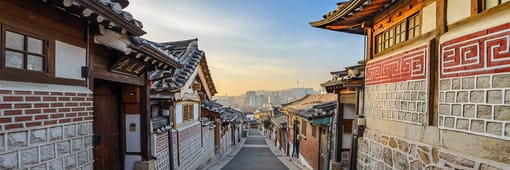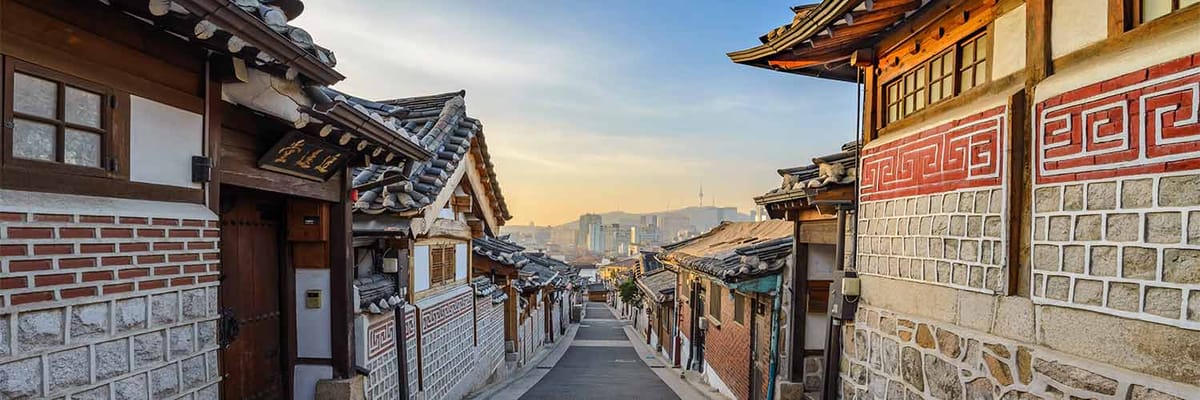Overview
For a city all but annihilated by bombs only a few decades ago, Seoul has made a remarkable transformation into a booming, technologically advanced megalopolis. While modernising was its top post-war priority, design and culture now top the agenda, and trendy cafés and cutting-edge galleries are increasingly cropping up among the centuries-old shrines and skyscrapers.
Getting around
With its clear English signage and colour-coded lines, the Seoul Metropolitan Subway network is a breeze to navigate, although using it during rush hour can feel like being in a cattle race. Buses are another viable option, but bear in mind English announcements are not a given. If public transport plans are scuppered, standard taxis – generally silver, white or orange in colour – can save the day. A rechargeable T-money smart card works for subway, bus and even taxi travel.
See & do
Few tourists leave the city without seeing Seoul’s premier historical attractions, Gyeongbokgung Palace and Changdeokgung Palace. Originally constructed in the 14th century, the Gyeongbokgung compound has been destroyed and rebuilt many times, yet still manages to retain its regal air. The UNESCO-listed Changdeokgung, originally second-fiddle to Gyeongbokgung, took over as the main royal residence after Gyeongbokgung was destroyed during the 16th-century Japanese invasion. The Seoul of old also lives on in Bukchon, an area containing a concentrated cluster of traditional hanok (wood-framed) homes.
For those with an interest in Korea’s 20th-century history, the comprehensive exhibits of the War Memorial makes a good primer before a tour of the Korean Demilitarized Zone (DMT). The granite ridges of Seoraksan National Park, meanwhile, are the go-to spot for urban hiking hobbyists.
For sweeping views over the city, ascend Bugaksan’s 342m peak or take the easy option and ride the lift up to the N Seoul Tower’s panoramic observatory. To sample some of Seoul’s frenetic nightlife, in which soju (a potent spirit distilled from rice) plays a starring role, hit the mega clubs Apgujeong or Hongdae, or the expat bars of Itaewon. Recover from a heavy night with a soak in the hot pools of the city’s jjimjilbang (bathhouses).
Hidden gems
Mullae-dong is still a metalworking hub, but look a little closer and you’ll find this factory-filled neighbourhood also has a certain creative edge, fuelled by the increasing artist population. Murals, street art and a scattering of unusual independent shops are hidden among the industrial environs. For return travellers who have already scoured the offerings of sprawling Namdaemun Market and Yongsan Electronics Market, head for the off-the-radar Namseong Market. Its live turtles and tubs full of swimming eels may not be top of your to-buy list, but they certainly make for fascinating browsing.
Food & drink
Life in Seoul moves at a notoriously fast pace so you’re going to need some fuel to keep up. Luckily, eating out here is a citywide hobby. For food on the go, try tteokbokki (rice cakes smothered in red chilli sauce) or jeon (savoury pancakes) at Gwangjang Market. Alternatively, sit down with friends and grill your own samgyeopsal (fatty slices of pork belly) on the table-top hot plate. It’s rare for a meal to be eaten without an accompanying soju (vodka-like spirit made from rice), beer or somac (a mix of the two).




